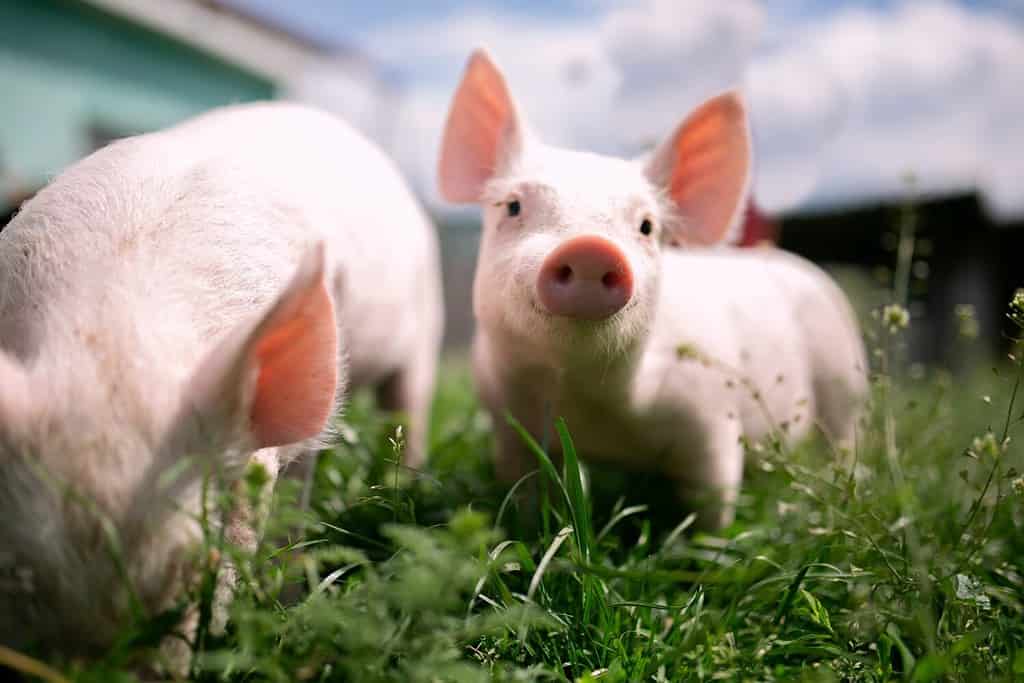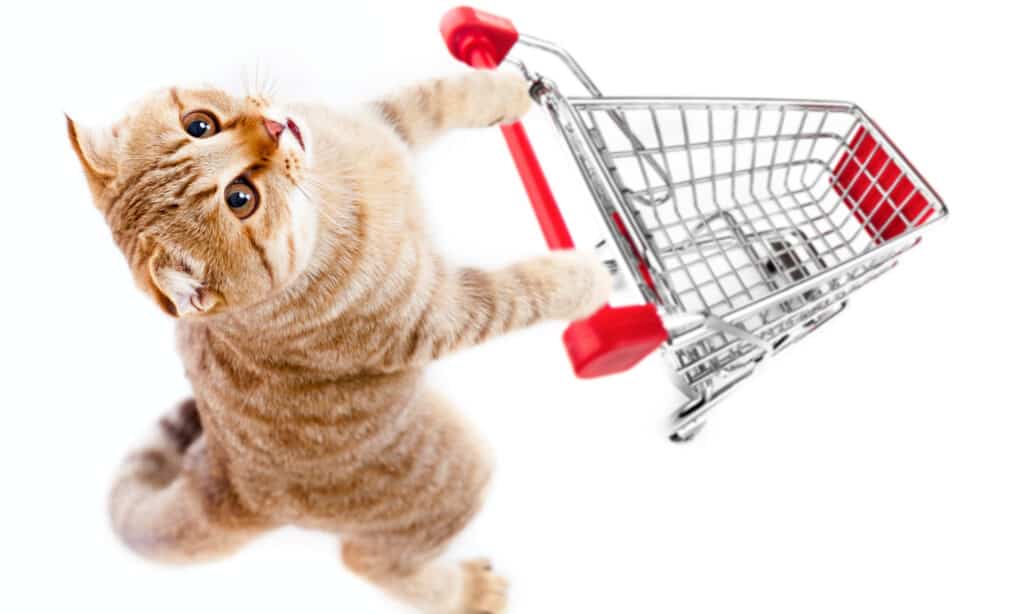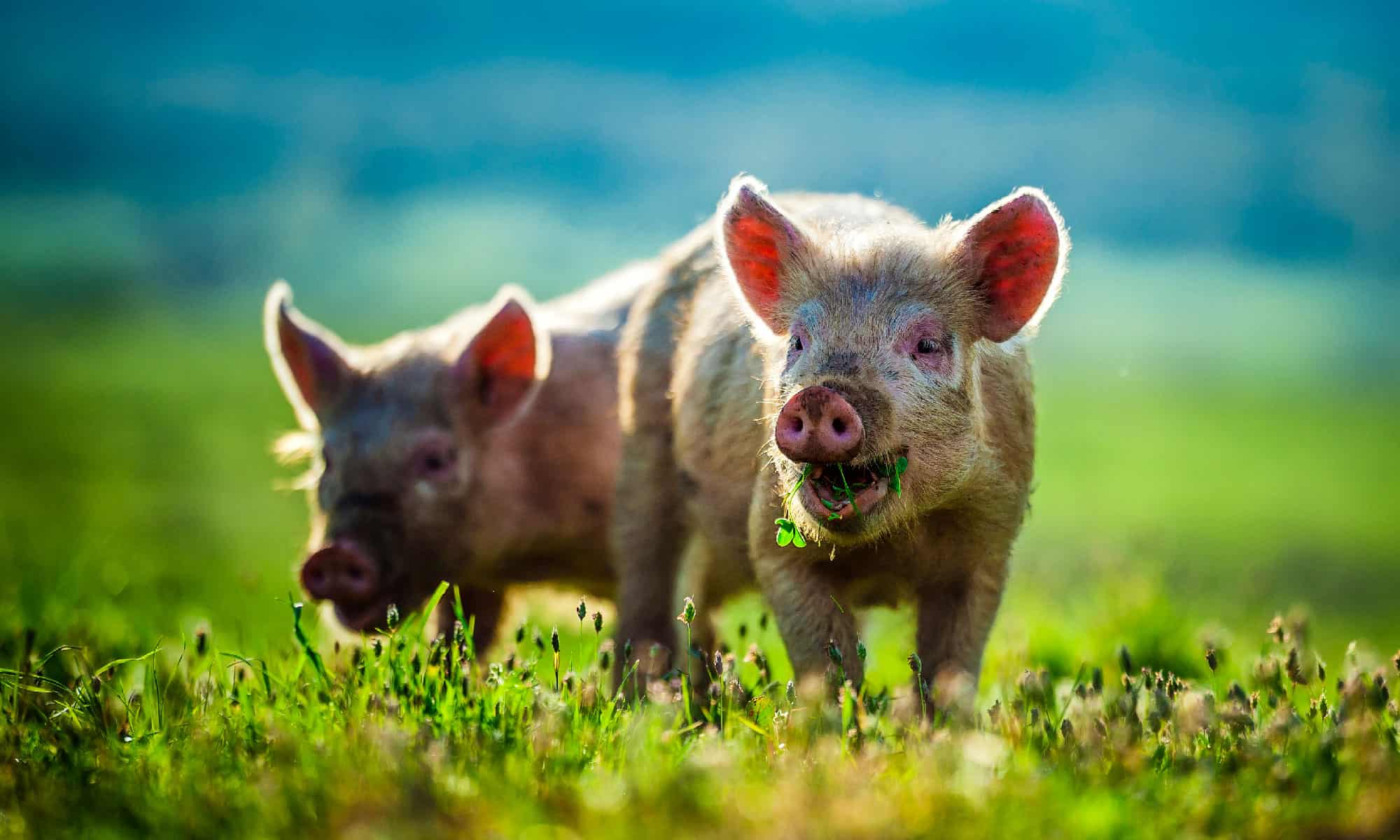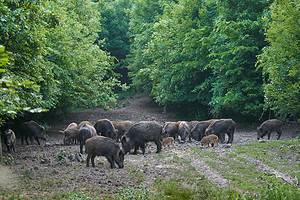There’s something exciting about a surprise. Your mind races, wondering what it could be. But some surprises aren’t so great. That’s what a “pig in a poke” is all about. Discover the origin and meaning of “pig in a poke,” including some examples of when you can use the phrase!
Possible Origins of a “Pig in a Poke”
“Pig in a poke” is an idiom believed to have originated during the Middle Ages. Frauds would frequently place either a dog or a cat inside a bag or pouch and sell it off as a piglet in street markets. The unsuspecting buyer would purchase the pouch or “poke” only to later realize the seller had swindled them. The phrase was used verbally as a warning to others not to buy a “pig in a poke,” meaning not to trust a seller with anything sight unseen. The word “poke” was used in the 13th century to describe a small sack or a bag. This idiom wasn’t seen in writing until 1555 when an English playwright, John Heywood, used it in Proverbs and Epigrammes.

“Pig in a poke” is an idiom believed to have originated during the Middle Ages stemming from the fraudulent practice of placing a dog or cat in a pouch and selling it off as a piglet in street markets.
©Bogdan Cherniak/Shutterstock.com
Examples of Everyday Use
While you can use the idiom as a warning for buyers, it can also be used in different contexts. For example, a person who marries another without full knowledge of the other person’s intentions and lifestyle is essentially buying a pig in a poke. Without a thorough understanding of the trade-off, an uninformed decision is made. Later, when that person realizes that they have entered a commitment with someone they later realize is not what they idealized, they want to back out. Rightfully so.
Another example is a used vehicle that breaks down shortly after purchase. Taking a seller for their word instead of following through with due diligence regarding a vehicle’s history results in a subpar or useless product. Still, other examples exist when it comes to exchanges between sellers and buyers. Someone passing off a fake designer handbag may claim it’s an original. A purchaser would be buying a pig in a poke if they trusted the seller’s words only to later realize the minor defects that reveal it’s a counterfeit handbag.

When shopping, buyers should beware of a pig in a poke.
©iStock.com/Andrey_Kuzmin
Unfortunately, a pig in a poke can be a major purchase like a home. Those who make a purchase recognizing that they’re going to have a fixer-upper don’t buy a pig in a poke. They know what they’re in for. But new homeowners taken over by the excitement of a property may fail to realize how much work it requires. They may think that it’s move-in ready and later come to realize it’s not what they signed up for. Though a home can be fixed up to appear brand new, a couple of coats of paint may be hiding something much more serious.
What Is a Useful Way to Illustrate the Phrase — “Pig in a Poke?”
On the popular online shopping site, eBay, sellers can put together a mystery box with varying contents. Sometimes, they reveal what type of items you might find inside (electronics, for instance). But some sellers may reveal nothing. This is a true pig in a poke — it’s a situation in which a buyer takes a risk. The decision is not informed and instead is more of a gamble. While the contents may pleasantly surprise the receiver, they may also be a total dud. An excited buyer may open the box to discover electronics only to realize they’re all faulty.
A Real-Life Example
BuzzFeed asked their community members to share their regrets after purchasing a home. One person shared anonymously about their experience. They had wanted an older home with charm and came upon one that seemed to fit the bill. The neighborhood was nice and the home had the appearance they were looking for. However, only a week after purchase they came to find that the central a/c did not work. Not only did it not work, but it had never been installed. They realized the realtor who sold the property had done a quick flip, barely glossing over serious problems to make it appear better than it was. The homeowner was devastated and ended up spending nearly $100k over three years before unloading it in much better shape. But there was no return on their investment.
What Are the Possible Pros and Cons
A pig in a poke is a gamble. Pros include the element of surprise and the excitement and hope that comes along with it. There exists potential that what you’ve purchased is the real deal. However, the cons are that it’s ultimately a risk. You could lose money and resources and experience frustration and disappointment. While it’s a learning opportunity, the consequences of a bad deal could linger for years.
Thank you for reading! Have some feedback for us? Contact the AZ Animals editorial team.








